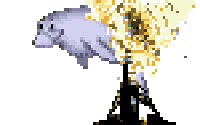One of the most exciting parts about the switch to Drupal 8 is the rapprochement of the Drupal community with the rest of PHP. This weekend I spoke at the Dutch PHP Conference in Amsterdam, where I got to be part of the vanguard of Drupalists reconnecting with the larger PHP world. The experience had a big impact on my perspective of the future of Drupal as a platform and as a community.
For many years Drupal was quite separate from the rest of the PHP universe. I would hear comments like: “I don’t know PHP. I’m a Drupal developer.” On the other side, our platform’s focus on accessibility for new and learning developers meant that many mainstream PHP coders considered Drupal a repository for poor code. The more Drupal built up its’ separate API and library of unique concepts like hooks and theme functions, the further we separated from everyone else in our programming language. This movement wasn’t unique to Drupal; as a group PHP developers were building on many, very different frameworks. The PHP World conference was a segregated affair; projects like Zend, PHPBB, and Wordpress kept to themselves.
This changed in 2010. Facebook had invested tremendous resources into their own brand of PHP, “HipHop”, and in many ways sparked a wave of renewed interest in the language. The PHP community spawned the Framework Interoperability Group (FIG), an initiative dedicated to standardized practices in PHP that could bring the various frameworks together. Drupal 8 was designed to align with the FIG goals, using current practices and components like Composer, PSR-4 namespacing, and dependency injection. Large parts of Drupal’s core functionality are provided by Symfony components; the system is now a recognizable contemporary PHP project. In the FIG era, PHP developers are rediscovering the enterprise class CMS in their midst.
I was surprised to learn about Drupal’s poor reputation among the more hardcore PHP developers. Many of them had had a bad experience with Drupal 5 or 6, and never looked back. Some had tried Drupal 7, and were bewildered by the slew of Drupal-specific concepts and structures they needed to learn for even the simplest modifications. Many people I spoke with thought of Drupal as a pile of procedural code, packed with confusing work-arounds and anachronisms that made it not worth adopting. Few had heard of Drupal 8’s move to contemporary, object-oriented coding practices. Many were dismissive of even the concept of an application framework like ours.
At the same time, the developers at this conference were just as fun and happy to help each other as at the best Drupal events. I learned a tremendous amount about working with Drupal’s new object-oriented tool kit, and grew a lot as a programmer. Once I explained the differences with Drupal 8, most people were curious to see just how it worked. And just like at my favorite Drupal events, even the most well-known developers were interested to help. I complained about my frustrations with the PHPUnit testing suite, and was introduced to the original author and maintainer. I had a question about the relative performance of PHP 5.6, 7, and HHVM, and got to talk about it with the release manager for the whole PHP project. This kind of openness and interest in collaboration convinced me more than anything else, that Drupal should integrate more with the mainstream PHP.
Drupal 8 RC1 is just around the corner, and Drupal developers all over the world are learning the new programming concepts that have reshaped our product. It is time for us to break out of our insular community, and learn from the rest of the PHP world. They’re friendly, they have a lot to teach us - and they can help take Drupal as a project to the next level.
